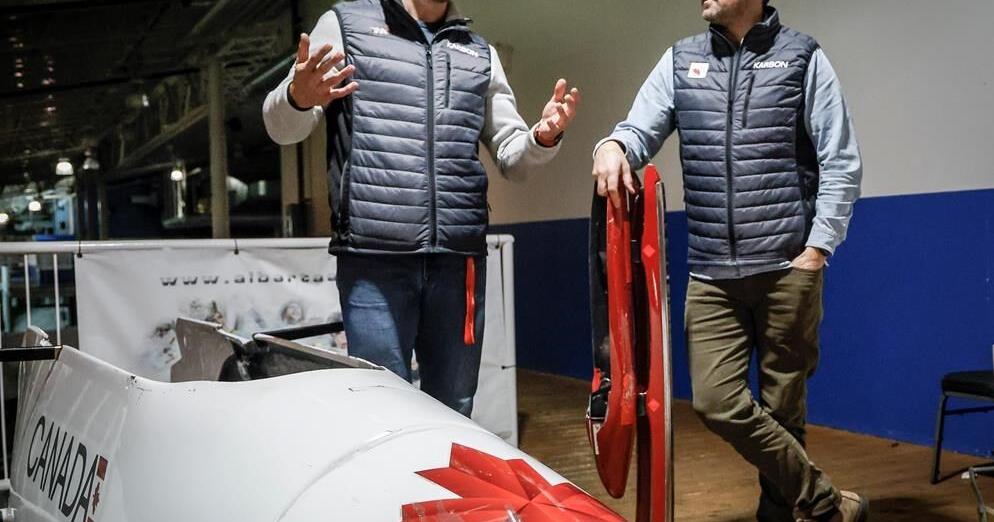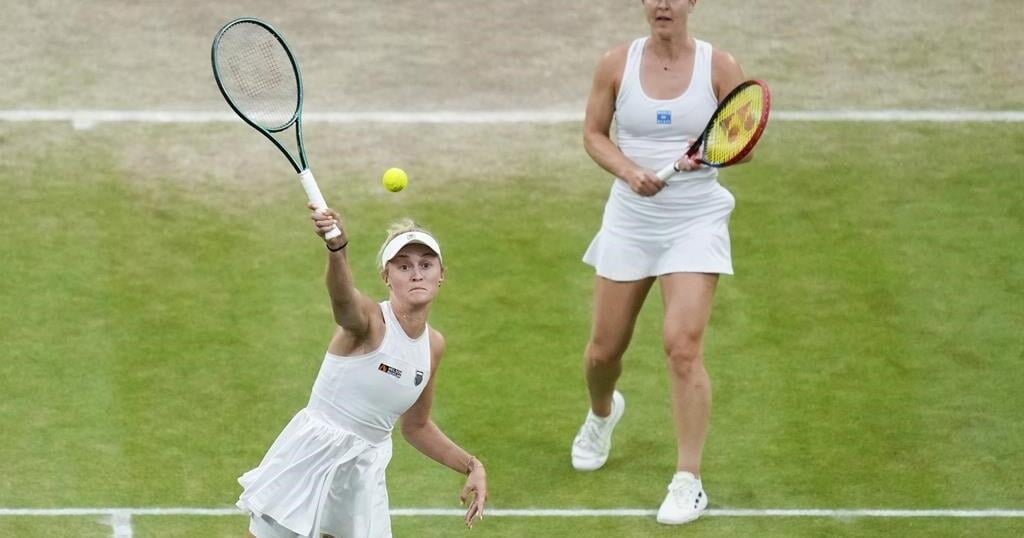CALGARY – Sam Edney and Jesse Lumsden sat on a bench on Parliament Hill during an athlete celebration after the 2014 Winter Olympic Games.
Having just represented Canada in their sliding sports — Lumsden in bobsled and Edney in luge — the two men pondered their futures together.
“There was actually one moment about, are we going to keep going? Talking about, what are each of us going to do? What’s the next four years look like?” Edney recalled a decade later.
“I do remember talking about that now. That was a big moment,” Lumsden said.
As the two men were sounding boards for each other as athletes, they are again as high-performance directors of their respective sliding sports.
Edney, an Olympic relay silver medallist in 2018 and the first Canadian man to win a World Cup gold medal, became Luge Canada’s HPD upon his retirement the following year.
Lumsden, a world and World Cup bobsled champion who raced his third Olympic Games in 2018, leaned on his sliding compatriot when he returned from five years of working in the financial sector to become HPD at Bobsleigh Canada Skeleton in July.
“The first person I called when BCS reached out to me about the role that I’m in now is Sam,” Lumsden said recently at Calgary’s WinSport, where they spent much of their competitive careers and now have offices.
“It’s been four months. I was squatting in the luge offices for the first two months beside him.
“We had all these ideas about we’re going to have weekly coffees and workouts Tuesday and Thursday and in the four months now, we’ve had two coffees and zero workouts.”
Canada has won at least one sliding-sport Olympic medal in each of the last five Winter Games, but Edney and Lumsden face a challenge as team leaders that they didn’t as athletes.
WinSport’s sliding track, built for the 1988 Winter Olympics in Calgary and where Edney and Lumsden did hundreds of runs as athletes, has been closed since 2019 needing a $25-million renovation.
There is no sign that will happen. WinSport took the $10 million the provincial government offered for the sliding track and put the money toward a renovation of the Frank King Lodge used by recreational skiers and snowboarders.
Canada’s only other sliding track in the resort town of Whistler, B.C., has a fraction of Calgary’s population from which to recruit and develop athletes.
“The comparison is if you took half the ice rinks away in the country, hockey and figure skating would be disarray,” Edney said.
“It just changes the dynamic of the sports completely, in terms of we’re now scrambling to find ways to bring people to a location that’s not as easy to get to, or to live out of, or to train out of full time.
“We’re realizing how good we had it when Calgary’s (track) was here. It’s not going to be the end of us, but it’s definitely made it more difficult.”
Lumsden, a former CFL running back as well as an Olympian, returned to a national sport organization still recovering from internal upheaval that included the athlete-led ouster of the former president and CEO after the 2022 Winter Olympics, and Olympic champion pilot Kaillie Humphries suing the organization for her release to compete for the U.S. in 2019.
“NSOs like Luge Canada and Bobsleigh Canada Skeleton, they’re startups,” Lumsden said. “You have to think like a startup, operate like a startup, job stack, do more with less, especially in the current environment.
“I felt it was the right time for me to take my sporting experience and the skill set that I learned at Neo Financial and working with some of the most talented people in Canada and try to inject that into an NSO that is in a state of distress right now, and try to work with the great staff we have and the athletes we have to start to turn this thing around.”
Edney, 40, and Lumsden, 42, take comfort in each other holding the same roles in their sports.
“It goes both ways. I couldn’t have been more excited about who they hired,” Edney said. “When Jesse was coming in, I knew that we were going to be able to collaborate and work together and get things happening for our sports.”
Added Lumsden: “We’ve been friends for a long time, so I knew how he was going to do in his role and before taking the role, having the conversation with him, I felt a lot of comfort.
“I asked ‘are you going to be around for a long time?’ He said ‘yeah, I’m not going anywhere.’ I said ‘OK, good.'”
This report by The Canadian Press was first published Nov. 4, 2024.




























